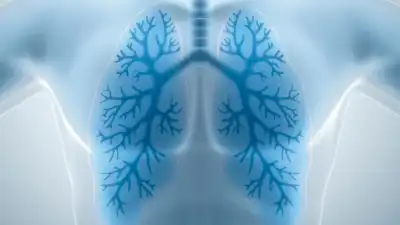Lungs are essential organs responsible for supplying oxygen to the body and removing carbon dioxide, a waste product of metabolism. They help you speak, sing, smell, and even play a crucial role in immune defense. Hence, keeping your healthy is crucial for your overall health. Fitness coach Dan Go, who has over 740K followers on Instagram, has shared 5 ways in which you can make your lungs stronger.
Max heart rate cardio
There is no debate that exercise is crucial for your physical and mental health. One way to keep your lungs healthy is to incorporate ‘Max heart rate cardio’ in your routine. He calls it the ‘heavy lifting’ for your lungs. This high-intensity exercise pushes your heart rate to its upper limits and challenges your respiratory system to adapt and grow stronger. These exercises include sprinting, cycling, or high-intensity interval training (HIIT) that elevate your heart rate significantly. “It can be as little as 30 seconds up to 20-minute intervals,” he asserts.
Zone 2 Cardio
Zone 2 cardio is a moderate-intensity exercise where you’re working just above the level where you can comfortably hold a conversation. This type of training enhances your aerobic capacity and allows your lungs to process oxygen more efficiently over time. Activities like brisk walking, jogging, swimming, or cycling at a steady pace work well. You can aim for 150–180 minutes per week.
Diaphragmatic breathing
Breathe! Yes, that’s right. Diaphragmatic breathing, also known as belly breathing, is a targeted technique to engage the diaphragm, the primary muscle responsible for respiration. The coach also describes how to ace it.
Step 1. Breathe through your nose so deeply that your stomach expands. Do this for 4 seconds.
Step 2. Hold for 6 seconds
Step 3. Breathe out through the nose for 8 seconds.
He suggests practicing this for 4 to 13 minutes.
Nose breathing
Well, this might come as a surprise to you, but most of us breathe through our mouths every now and then. Breathing through your nose is a simple yet highly effective way to improve lung function. Unlike mouth breathing, nose breathing filters out dust and allergens, humidifies the air, and regulates airflow to the lungs.
